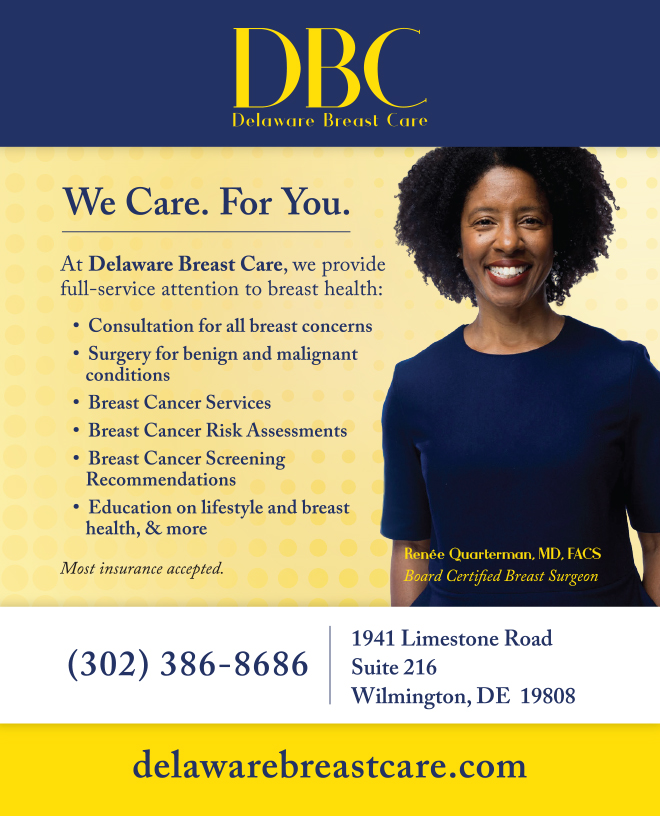Diet & Breast Health

By Renée L. Quarterman, MD, FACS
Everywhere we look, there’s information about how what we eat affects our bodies. What do we know about diet and breast health? Actually, quite a lot!
Sugar
Eating too much sugar can lead to excess calories and fat deposition. Increased body fat increases the risks of some types of breast cancer. Additionally, sugar may have a direct link to breast cancer by promoting the growth of breast cells. Moderating sugar intake is a good idea for breast health.
Antioxidants
An antioxidant is a substance that keeps your cells healthy and functioning properly. It protects against damage and promotes cellular repair when damage is done. Beta carotene, vitamin C and vitamin E are the major sources of antioxidants. They’re abundant in fruits and vegetable (the brighter the color, the better). Antioxidants have protective effects against breast cancer. Eating about 10 servings of fruits and vegetables per day is recommended.
(Don’t think that food has to be fresh in order for it to be healthy. Many fruits and veggies are fresh-frozen. This means that their nutrients are locked in, and you can keep them for a long time without concern that they’ll go bad. Frozen fruits and veggies are often more economical than fresh!)
Omega-3 Fatty Acids
These essential fats appear to reduce breast cancer risk. You can find them in foods such as flaxseeds (including oil), soybean oil and canola oil. Salmon, mackerel, tuna, herring and sardines are particularly high in these fatty acids. Fish oils have higher fatty acid concentrations than fish flesh.
Soy
Soy contains phytoestrogens – plant-based forms of estrogen that, in some cases, can alleviate hot flashes, night sweats and other symptoms of menopause. Soy products can actually be protective against breast cancer. It’s a nice alternative to meat products and is high in several nutrients. It’s important to know that soy may increase the risk of recurrence of some types of breast cancer. So, if you have a personal history of the disease or are at high risk for breast cancer, this is a substance that you should avoid (unless approved by your doctor).
The Mediterranean Diet
This incorporates daily ingredients of fish, poultry, nuts, fruits and vegetables. The dishes are commonly cooked in olive oil. Red meat, sugar and dairy products are kept at a minimum. The combination of nutrients (with the heat of cooking as a catalyst) promotes health in many ways. Recently, the diet has been linked to reduction of breast cancer risk. Moreover, for women with breast cancer, adopting the Mediterranean diet led to a reduction in cancer recurrence.
Alcohol
Drinking as few as two alcoholic beverages a week increases breast cancer risk.
Organic Food
Organic food options may be healthier for breast tissue. Studies are underway, but it makes sense to many doctors that, since organic food is produced with fewer chemicals, it may reduce breast cancer risk or improve outcomes for women with breast cancer. But if you can’t get organic options, don’t worry. Fresh produce, regardless of how it was raised, is always a healthy option!
Meat
Beef and pork are notoriously high in fat, and fat is linked to increased breast cancer risk. So, when looking for a protein source, go for lean cuts. Also, remember that poultry and fish are hearty, filling foods with breast health benefits!
Grilling
Studies show us that the char on grilled meat is linked to increased breast cancer risk. The char on grilled poultry and vegetables may have the same effect. So, as delicious as it is, try to get your food off the grill before it burns. You can also simply wrap your food in foil or place it on foil on the grilling rack.
Supplements
Many people buy vitamin, mineral and fatty acid supplements to take daily. Sometimes, these products aren’t adequately absorbed into the bloodstream and you’re not getting the health benefits that you think you are. Consult with your doctor or nutritionist first.
Finally, remember that fruits and vegetables contain sugar; meat, fish and poultry contain fat. Overzealous efforts to eat healthy may backfire if you eat too much of anything. Remember to keep your dietary choices in moderation! If you’d like to know more, please call 302.386.8686 or visit us at www.delawarebreastcare.com.
Bio
Dr. Quarterman is a board-certified surgeon dedicated to promoting and preserving breast health. Raised in Wilmington, Delaware, she attended Brown and Duke Universities.
Testimonial
“I give Dr. Quarterman the highest recommendation as a doctor, surgeon and person. I could not have had any better care.” ~ Marie P.


